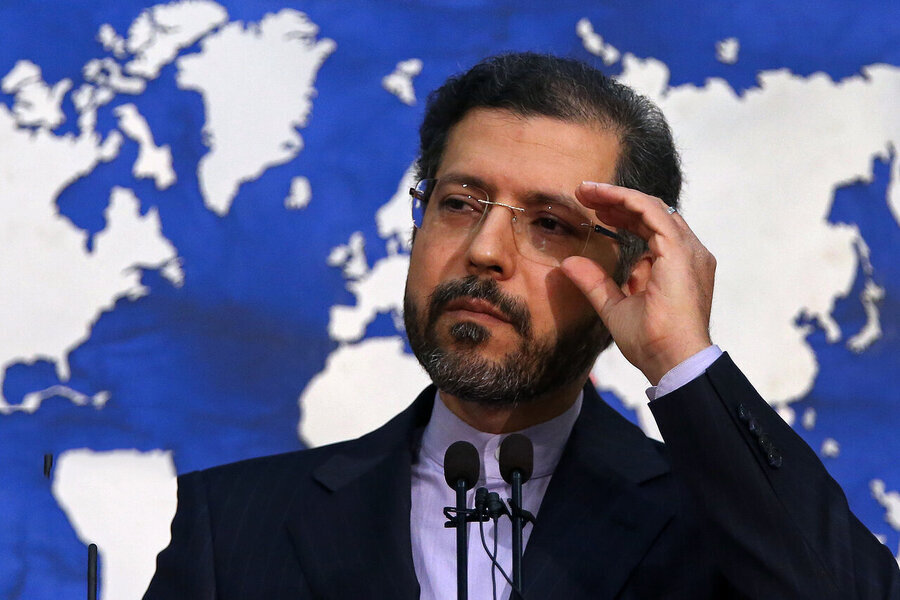UN Security Council resolution on Yemen taints peace, Tehran says

TEHRAN- Iran's Foreign Ministry spokesperson has slammed the latest renewal of an arms embargo against Yemen's popular Houthi resistance movement, which has been defending the nation against a Saudi-led assault since March 2015.
Saeed Khatibzadeh said on Tuesday that the UN Security Council resolution on the Yemen issue, as well as the language employed in it, will have a detrimental impact on the peace process and strengthen the position of the armed rivals.
The resolution “bears negative repercussions in the path towards peace,” he added.
A day earlier, the 15-member Council decided to extend a targeted UN arms ban on key Houthi Ansarullah movement leaders to the whole movement.
Since 2015, the movement has taken control of the country when Yemen's former Saudi-backed government fled amid a political crisis, refusing to stay behind and negotiate a solution.
The conflict has led to the death hundreds of thousands of Yemenis and turned Yemen into the site of the world's greatest humanitarian disaster.
The U.S. has been providing military, logistical, and political assistance to the Saudi-led war on Yemen, which has been raging since March 2015.
The UN resolution harshly denounced Yemeni fighters' counterattacks, especially those against Saudi Arabia and the United Arab Emirates — Riyadh's key supporter in the war coalition — and urged an immediate halt to the retaliation.
The resolution, Khatibzadeh added, has been adopted in line with “the political considerations and lobbying of members of the aggressor coalition.”
As a result, it contradicts efforts to revive the political process by further isolating the conflicting parties' stances, according to the official.
Khatibzadeh lambasted the Security Council for “distancing itself from its inherent duties” in Yemen from the start of the Saudi-led war and for turning a blind eye to the aggressors' atrocities.
This, he noted, has contributed to “systematic and serious violations of the international humanitarian laws, massacre of civilians, extensive destruction of civilian infrastructure, and illegal embargo of [Yemen’s] ports and airports,” amid international silence.
Such an approach further complicates the prospect of achieving a “fair” and “lasting” peace, Khatibzadeh added.
Yemen's Supreme Revolutionary Committee leader, Mohammed Ali al-Houthi, blasted the decision for disregarding the Saudi-led coalition's crimes, adding that any arms embargo that did not apply to the Western-backed alliance "had no value."
If the objective is to ensure justice, the U.S.-Saudi-Emirati aggressor coalition's deliberate targeting of Yemen and its war crimes should have been cause for a weapons ban, he argued.
He further mentioned that after supplying weapons to Persian Gulf nations, the Americans, British, and others put their weapons to the test by killing Yemeni children.
They, according to the official, deny Palestinians’ access to weapons while providing lethal weapons to Israel that commits war crimes.
“Yemen now has a new weapon that it did not have before. Thank God, it is the jihad (endeavor for the sake of God) of the brave Yemenis, who have achieved it, as well as the defeat of the American-British-Saudi-UAE coalition and its military allies,” he remarked.
Similarly, Mohammed al-Bukhaiti, a member of Yemen's Supreme Political Council, stated that the UN Security Council's decision to extend arms embargo will deprive Yemen of its right to self-defense while the world requires a new order based on justice.
“We tell the countries that voted in favor of the resolution that you and your oppressive decisions are under our feet because we rely only on God,” he asserted.
The war on Yemen was intended to restore the former Riyadh-backed dictatorship and smash the Ansarullah resistance organization, which has been handling state activities in Yemen in the absence of a competent government.
Despite seven years of relentless attacks on Yemen, the war has ended well short of its objectives.
The Yemeni resistance has become stronger in the face of the Saudi-led invasion, advancing toward strategic areas held by Saudi-led mercenaries, such as Ma'rib province, and launching many rounds of counter-strikes against Saudi Arabia and the UAE in recent months.
In April 2015, Iran put forward a four-point plan to end the conflict in Yemen. It called for cessation of war, establishing intra-Yemeni dialogue, end the siege on the country, and send humanitarian aid to the country. Iran’s plan was submitted to Ban Ki-moon who was UN secretary general at the time.
Leave a Comment